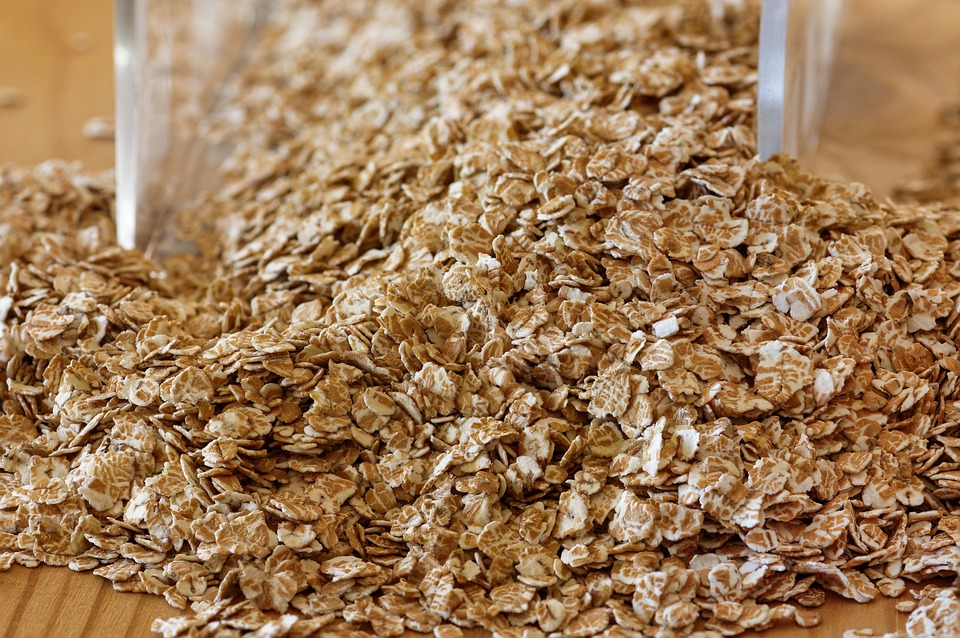
To achieve peak energy, focus on a balanced diet rich in complex carbohydrates, lean proteins, and healthy fats. Prioritize whole grains, quinoa, and sweet potatoes for slow-releasing complex carbs. Include lean proteins like eggs and Greek yogurt, and opt for healthy fats from avocados and nuts. Don’t forget essential vitamins and minerals like B vitamins and magnesium, which are crucial for energy conversion and muscle function. Aim for smaller, frequent meals every 3 to 4 hours to maintain stable energy levels. Avoid processed snacks and caffeine overload. If you explore further, there’s much more about optimizing your energy through food choices.
Carbohydrates for Energy
Carbohydrates are key to fueling your body with energy, but not all carbs are created equal. You need to choose wisely between two main carbohydrate types: simple and complex.
Simple carbs, found in sugar-laden drinks and snacks, might give you a quick energy lift but will soon drop you into an energy pit. They lead to rapid blood sugar spikes and crashes, which can cause fatigue and hinder endurance. By prioritizing complex carbohydrates in your diet, you can maintain steady energy levels and improve endurance during physical activities.
If you crave sustained energy and freedom from constant hunger, complex carbs are your allies. They’re found in whole grains, legumes, and vegetables, offering a steady energy release that keeps you going.
In your journey to peak energy, mastering carbohydrate timing is crucial. Consistent intake of 6-12 grams of carbohydrates per kg of body weight daily is essential for maintaining energy levels, especially during training. Consume complex carbohydrates like whole grains, fruit, or vegetables 1-2 hours before workouts. This preparation allows you to harness the long-lasting energy these foods offer.
The right timing guarantees your muscles get the fuel they need, enhancing your performance without the energy crashes tied to simple carbs. Remember, achieving your best performance isn’t just about what you eat, but when you eat.
Embrace the liberation that comes with feeding your body the right carbs at the right time.
Importance of Healthy Fats
While you’re honing your diet for peak energy, don’t underestimate the power of healthy fats. They’re more than just a source of flavor; they’re essential for your body’s freedom from limitations. Consider vibrant avocado slices, heart-healthy fatty fish, and luscious nuts and seeds – these healthy fat sources supercharge your brain and body. Including sources of collagen in your diet could further enhance joint and skin health, complementing the benefits of your healthy fats.
Dive into healthy fat benefits: lower your heart disease risk by choosing foods rich in unsaturated fats over saturated ones. Your brain thrives on omega-3 and omega-6 fatty acids, found in salmon and walnuts, which enhance cognitive function and skin health. Because the type of fat consumed is more crucial over time than the total amount, prioritizing quality fats can significantly boost your overall health.
Imagine feeling satiated with sustainable energy; healthy fats like those in avocados and nuts offer precisely that, helping manage hunger naturally. Empower your body with nutrient-rich choices – extra virgin olive oil adds a heart-healthy touch and antioxidants boost your immunity, while even dark chocolate with over 70% cocoa reveals cardiovascular and cognitive rewards.
Liberate your meals by cooking with healthy oils, incorporating nuts and seeds, and relishing in slices of avocado. With each bite, you’re choosing vitality over restriction, embracing a lifestyle where energy and well-being aren’t negotiable.
Role of Lean Proteins

As you benefit from the sustained energy of healthy fats, complement your diet with the power-packed role of lean proteins. These nutrients aren’t just essentials; they’re freedom-inducers, empowering you to maintain energy throughout the day. Lean proteins actively participate in weight loss, muscle preservation, and metabolism improvements. They help balance your blood sugar and support overall health. “Increasing protein” intake is linked to reduced cravings and improved weight management. To harness these advantages, consider your protein sources and timing. Here’s how you can achieve this:
- Diversify Protein Sources: Incorporate a variety of lean proteins like skinless chicken, fish, and plant-based options such as tofu and lentils. Embrace liberation through choice while nourishing your body.
- Maximize Protein Timing: Don’t load up all your protein during a single meal. Spread your intake evenly across meals to enhance muscle synthesis and energy balance. A well-distributed protein intake can also capitalize on the thermic effect of food, contributing to a slightly increased calorie burn throughout the day.
- Follow the 10%-30% Rule: Allocate 10% to 30% of your daily calorie intake from proteins. Consider high-protein diets of up to 35% if maintaining lean body mass is your goal.
- Harness the Leucine Advantage: Target 2.2 to 3.0 grams of leucine per meal to stimulate peak protein synthesis. This attention to detail serves your quest for peak energy.
Liberate yourself, and let lean proteins fuel your journey to health!
Essential Vitamins and Minerals
Feeling drained or struggling to maintain your energy levels? Perhaps the answer lies with essential vitamins and minerals. They empower your body, igniting a spark for liberation from fatigue.
Start with key vitamin functions: B1 (Thiamin) converts carbohydrates into energy, and B2 (Riboflavin) powers your heart and muscles while defending your cells as an antioxidant. Not to be outdone, B3 (Niacin) fuels energy production and antioxidant processes; B5 (Pantothenic Acid) is vital for energy metabolism and hormone balance; B6 (Pyridoxine) aids in accessing stored energy, especially if you’re constantly on the move. Interestingly, a deficiency in B vitamins can lead to fatigue and mood disorders, which highlights their importance in maintaining energy levels. Healthy fats, such as those from avocados and olive oil, are also essential as they enable fat-soluble vitamins A, D, E, and K to be absorbed effectively.
Now, explore mineral sources. Iron builds healthy blood and smashes fatigue, found in liver, dried fruits, and sardines.
Magnesium, from nuts and wholemeal bread, fuels energy and supports immunity. Calcium, essential for oxygen transport and formidable bones, comes from dairy.
Zinc, abundant in red meat and shellfish, supports growth and energy metabolism. Potassium, vital for muscle function and blood pressure, is easy to find in many foods.
Meal Timing Strategies

When you’re aiming for peak energy levels, timing your meals effectively can make all the difference. It’s not just what you eat but also when you eat that matters. Maintaining a steady rhythm can help you break free from the chains of fatigue.
To harness the power of meal frequency and portion control, consider these strategies:
- Frequent, Smaller Meals: Eating smaller, frequent meals maintains consistent energy levels. By consuming three small-to-moderate meals and two snacks a day, you prevent energy peaks and troughs that can slow you down.
- Timing: Consuming meals every 3 to 4 hours aids in keeping energy steady, allowing you to stay active and vibrant throughout your day without feeling drained.
- Portion Control: Opt for smaller portions at lunch to dodge the notorious afternoon slump. This prevents your body from getting bogged down in digestion, making space for freedom and alertness.
- Strategic Snack Choices: Choose snacks that are quick to provide an energy boost without crashes later. Fruits, nuts, and seeds are great options, giving you the liberty to keep moving at your pace, on your terms.
Incorporating interval training into your routine can further enhance energy levels and support efficient workouts. Implement these meal timing strategies, and you’ll be on your way to living with unparalleled energy and freedom.
Energy-Boosting Food Choices
To truly access your potential and maintain peak energy levels, choosing the right foods is essential. Embrace nourishment that liberates you with complex carbohydrates like oatmeal and sweet potatoes, perfect for mornings that demand sustained vigor.
Consider quinoa for a lunch that provides a complete protein boost, offering all essential amino acids and keeping your energy steady. Craving an afternoon lift? Reach for energy-boosting snacks like a banana paired with dark chocolate, wrapping you in the bonus comfort of antioxidants.
For a supercharged start, blend a superfood smoothie with Greek yogurt, bananas, and a handful of berries. This combination fills your day with protein, healthy fats, and natural sweetness.
Throw in some goji berries for an extra punch of antioxidants to keep fatigue at bay. Banishing afternoon slumps becomes manageable by savoring heart-healthy fats found in avocados or nuts.
Let hummus provide a creamy partner for crunchy veggies, unshackling you from cravings and fueling sustainable energy. By integrating these vibrant foods into your daily rhythm, you’re not just eating—you’re choosing freedom.
Reclaim your energy one thoughtful bite at a time.
Avoid Common Energy Crushers

Steer clear of common energy crushers by making informed food choices that support your energy goals. You’re free to choose foods that empower you rather than weigh you down. High energy density foods like fried foods and chips can drain your vitality, leading to overeating without satisfying your hunger. Instead, embrace whole foods bursting with nutrients to keep your energy steady.
To maintain your independence from the clutches of mindless eating, it’s crucial to be aware of pitfalls and alternatives:
- Limit Processed Snacks: Opt for fruits or veggies instead of high-calorie, low-volume ultra-processed foods to stay satiated without the crash.
- Combat Cravings: Understand that stress and emotions trigger cravings. Relieve stress and stay hydrated to curb these urges and reclaim control.
- Mindful Eating: Notice when you’re eating out of boredom or habit. Choose smaller plates and pay attention to your body’s hunger signals for mindful consumption.
- Less Alcohol and Caffeine: Excessive alcohol and caffeine can disrupt energy management and nutrient intake. Enjoy in moderation, choosing healthier drink alternatives.
Take charge and be the architect of your liberation, fueling your body with energy that empowers you every step of the way.
Sustain Energy With Balanced Proteins
For peak energy and overall well-being, integrating a balanced protein intake into daily meals is essential. High-protein diets not only aid in maintaining sustained energy by regulating carbohydrate digestion but also support weight management by enhancing satiety and metabolic rate. The body utilizes protein to build and repair tissues, maintain a robust immune system, and guarantee healthy bodily functions.
Understanding daily protein needs, based on individual factors such as age, weight, and activity levels, allows for tailored dietary planning that maximizes health and performance.
By incorporating a diverse array of high-quality protein sources—from lean meats and seafood to plant-based options—one can secure all essential amino acids necessary for the body’s peak functioning. Regularly integrating protein across meals, whether through a hearty breakfast of eggs and Greek yogurt, a lunch rich with grilled fish and vegetables, or snacks of nuts and seeds, assists in stabilizing energy levels and preventing blood sugar spikes.
Tracking and planning protein intake guarantees the body’s ongoing nutritional requirements are met consistently.
Ultimately, for those aiming to enhance energy and well-being, adopting a high-protein diet is a dynamic step in the right direction. It isn’t just about the quantity of protein but the variety and quality, making sure to consult with a dietitian allows for the development of personalized plans that align with specific health goals and lifestyles.














